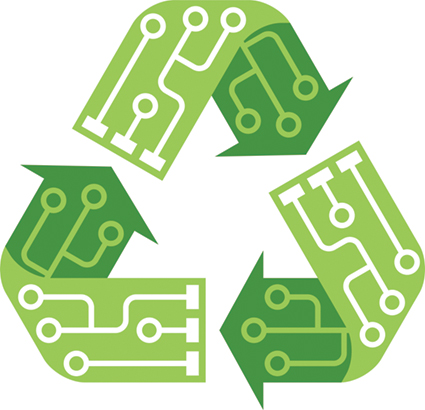
By Debbie Gardner
dgardner@thereminder.com
America has been celebrating Earth Day since April 22, 1970, when Senator Gaylord Nelson (D- Wisconsin) created the day of action to bring attention to the decade’s toxic air and water pollution and force the issue of protecting the planet onto the national agenda.
As Earth Day celebrates its 54th year in 2024, more than 1 billion people from 193 countries are expected to take part in the now global celebration (www.earthday.org), focusing on plastic pollution.
If all the recent talk of climate change has motivated you to do a bit more to help the planet this Earth Day, Prime has a go-to-guide to get you started. Check out these resources:
RecycleCoach – a handy app to get you started. Yes, you can download an app to your phone to help you with tasks like tracking your recycling dates, learning what’s acceptable for recycling in your municipality, even getting info to stop any “wishcycling” – that’s when you toss something you think might be recyclable in your bin and make the whole thing unusable. Download from Google Play or the Apple App Store or from https://recyclecoach.com/
RecycleCoach also posts info on Facebook (http://tinyurl.com/4wfbx4j7) and Instagram (https://www.instagram.com/recyclecoachapp/?hl=en)\
Earth911 - get the latest recycling info and more in a podcast. This comprehensive website covers everything from how to buy more sustainable products and fashions to whether you should consider moving to mitigate the effects of climate change on your family. Podcasts and audio articles for businesses, homeowners and environmentally minded individuals on a wealth of topics. Listen in at https://earth911.com/
Simple steps to help the planet
There’s plenty you can do on your own to help the planet. Here’s some ideas, and where you can find the info online to do it right:
Compost those food scraps. Untreated food in landfills breaks down into methane gas, a contributor to climate change. At home, you can turn dry leaves, herbicide-free grass clippings and food scraps into nutrient-rich garden soil right in your own backyard, helping to cut down on methane production. For instructions on how to get started visit https://www.epa.gov/recycle/composting-home
Find a way to deal with fabrics. From clothing to towels, curtains and some bedding, there’s ways to dispose of unwanted or worn-out items without tossing them in a landfill (which is now illegal in the state of Massachusetts). Beyond donating these items, check out these websites for ways to recycle textiles:
Recycling box locations in Massachusetts and Connecticut: https://www.baystatetextiles.com/
Retailers with programs for recycling clothing and shoes: https://www.mass.gov/guides/clothing-and-textile-recovery#-consumer-donation-&-recycling-
Recycle paper, plastic, glass right. Glass containers, most paper products and most plastics are recyclable in Massachusetts, though the types of plastics accepted by local materials handling facilities (those numbers in the triangle on the bottom) may be restricted not by the type of plastic, but by what the facility is equipped to handle. Many municipalities now offer single-stream recycling, which means no more separating out these recyclables.
To be sure you are prepping your recyclable right, and not fouling the processing stream, follow the directions on this infographic: https://recyclesmartma.org/wp-content/uploads/2020/09/Recycle-Smart-Infographic-1-1.pdf
Dispose of appliances and electronics. One of the hardest things to recycle properly might be an old air conditioner, dehumidifier or even a laptop. Fortunately, there are services that specialize in turning these unwanted tools into the proper elements for reuse.
When it comes to consumer electronics such as smart phones, laptops, tablets and the like, Mass.gov. suggests contacting the Consumer Technology Association, manufacturer web sites, or retail store locations for details on how to recycle those types of products.
Find the Consumer Technology Association recycling info at: https://www.cta.tech/Landing-Pages/Greener-Gadgets/Recycle-Locator#/ or at https://www.cta.tech/Landing-Pages/Greener-Gadgets For the batteries in electronics, which must be recycled separately, visit https://www.call2recycle.org/locator/
Many appliances manufacturers, such as LG, GE and Panasonic, offer recycling programs. To find info about those programs, visit https://earth911.com/recycling-guide/how-to-recycle-large-appliances/
Manage that old mattress. The state of Massachusetts now has a recycling program for old mattresses to keep them out of landfills. Most retailers will take away old mattresses – often for a fee – when you purchase a replacement. Many cities and towns also have mattress recycling programs.
To find out about local mattress recycling programs in your area, visit https://www.mass.gov/guides/mattress-recycling
Handle construction waste. Clean gypsum wallboard, old asphalt, even wood, certain flooring and ceiling tiles can all be recycled through the proper programs.
To find out more about recycling construction materials in Massachusetts, visit https://recyclingworksma.com/how-to/materials-guidance/construction-materials/
To find out info on recycling ceiling tiles manufactured by Armstrong, visit https://www.armstrongceilings.com/commercial/en/performance/sustainable-building-design/ceiling-recycling-program.html
Have more you want to recycle? The Massachusetts-based website, recyclesmart.org, offers a tab called “beyond the bin” which allows users to select a type of material to recycle — from tires to books, furniture and propane tanks —and find the nearest recycling opportunity for that material.
To learn how and where to recycle most anything, visit https://recyclesmartma.org/beyond-the-bin-search/
RecycleSmart is on social media. Check their Facebook page (https://www.facebook.com/recyclesmartma), Instagram (https://www.instagram.com/recyclesmartma/) and X — (formerly Twitter) feed (https://twitter.com/i/flow/login?redirect_after_login=%2FRecycleSmartMA) — for more recycling information and tips.